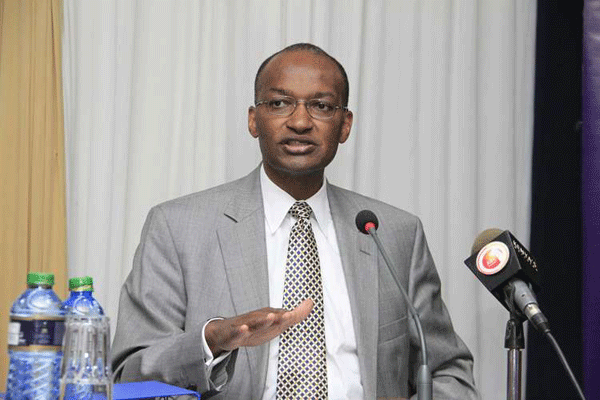The Monetary Policy Committee (MPC) has voted to retain the Central Bank Rate (CBR) at 9.0%, stating inflation expectations remained well anchored within the target range, and that the economy was operating close to its potential.
“The MPC concluded that the current policy stance remains appropriate, and will continue to monitor any perverse response to its previous decisions. The Committee therefore decided to retain the CBR at 9.00 percent. The MPC will continue to closely monitor developments in the global and domestic economy and stands ready to take additional measures as necessary,” Central Bank of Kenya (CBK) Governor Dr Patrick Njoroge said after a meeting of the MPC on Tuesday, the last in 2018.
Analysts at Cytton Investments had correctly predicted in an MPC Note there was unlikely to be a change in stance.
He said the meeting was held against a backdrop of macroeconomic stability, increased optimism on the economic growth prospects, and heightened uncertainties in the global financial markets.
“Month-on-month overall inflation remained within the target range in September and October, largely due to lower food prices and muted demand-driven inflationary pressures. The inflation rate fell to 5.5 percent in October from 5.7 percent in September, following decreases in food prices which offset the increase in energy prices and transport costs following the implementation of VAT on petroleum products in September 2018. Nonfood-non-fuel (NFNF) inflation remained below 5 percent, indicating that there were no demand pressures in the economy,” said Njoroge in a statement.
“Looking forward, overall inflation is expected to remain within the target range in the near term, mainly due to expected lower food prices reflecting favorable weather conditions, the decline in international oil prices, and the recent downward revision in electricity tariffs. The recent excise tax adjustment on voice calls and internet services is expected to have a marginal impact on inflation,” he added.
The MPC also noted that foreign exchange market has remained balanced supported by a narrowing in the current account deficit to 5.3 percent in the 12 months to September 2018 compared to 6.5
percent in September 2017. The narrowing of the current account deficit is largely due to increased exports of tea and horticulture, increased diaspora remittances, strong receipts from tourism, and lower imports of food and SGR-related equipment relative to 2017. It is expected to narrow further to 5.2 percent of GDP in 2018 from 6.3 percent in 2017.
The CBK foreign exchange reserves, which currently stand at USD8,034 million (5.3 months of import cover) continue to provide adequate cover, and a buffer against shortterm shocks in the foreign exchange market.
According to the MPC, private sector credit grew by 4.4 percent in the 12 months to October 2018, compared to 3.9 percent in September, driven by strong growth in manufacturing, business services, finance and insurance, and building and construction, which grew by 14.9 percent, 12.4 percent, 9.1 percent and 7.2 percent, respectively. Growth in private sector credit is expected to pick up gradually with the continued expansion of the economy.
It said the banking sector remains stable and resilient. Average commercial banks’ liquidity and
capital adequacy ratios increased to 48.9 percent and 18.4 percent, respectively, in October
2018. The ratio of gross non-performing loans (NPLs) to gross loans fell to 12.3 percent in
October 2018 from 12.7 percent in August, largely due to declines in NPLs in the trade,
and personal and household sectors. The declines were mainly due to sustained recovery
efforts by banks.
Data for the second quarter of 2018 showed a strong pickup of the economy, with real GDP growth averaging 6.0 percent in the first half of 2018 compared to 4.7 percent in the first half of 2017. This outcome was due to a strong recovery in agricultural activity due to improved weather conditions, continued recovery of the manufacturing sector, and resilient performance of the services sector particularly trade, tourism, information and communication, transport, and real estate.
Overall growth in 2018 is expected to be strong, supported by recovery in agricultural production, alignment of Government spending to the Big 4 priority sectors, a stable macroeconomic environment, an improved business environment, and a favorable external environment.
The MPC Private Sector Market Perception Survey conducted in November indicated that inflation expectations were well anchored within the target range in the near term on account of lower food prices and reduction in electricity prices. The Survey revealed increased optimism for stronger overall growth in 2018. Respondents attributed this optimism to, among other factors, improved agricultural production, continued infrastructure development, an improvement in the business environment, focus by the Government on the Big 4 priority sectors, a stable macroeconomic environment and the
expected increase in trade and tourist arrivals following the commencement of direct flights to the United States. However, the optimism was tempered by sluggish private sector credit growth, concerns over delayed government spending, and the recent increase in fuel prices.
According to the MPC, although global growth has continued to strengthen in 2018, the risks have increased particularly with regard to the escalating trade tensions, pace of normalization of monetary
policy in the advanced economies, and divergence in the monetary policy stances between the developed and emerging market economies. The volatility in the global financial markets and change in investor sentiment could lead to further turbulence in emerging market economies, it added.
The MPC said an updated assessment of the impact of interest rate caps showed that the caps had weakened the effectiveness of monetary policy transmission, with further evidence of perverse outcomes. In particular, the transmission of changes in the CBR to growth and inflation takes longer compared to the period before caps.












2 Comments